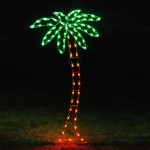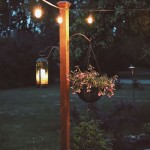Essential Aspects of Light in Outdoor Photography
Light is the lifeblood of outdoor photography, illuminating your subjects and shaping the overall mood and atmosphere of your shots. Understanding and working with the available light can elevate your photography and produce stunning results. Here are some crucial aspects to consider when using light in outdoor photography:
1. Quality of Light:
The quality of light refers to its direction, color, and intensity. Different lighting conditions offer unique characteristics. Soft, diffused light from overcast skies minimizes harsh shadows and creates a flattering evenness. On the other hand, directional light from the sun during golden hour produces dramatic shadows and adds depth to your compositions.2. Time of Day:
The time of day significantly impacts the quality of light. Early morning and late afternoon offer warm, golden light that can add warmth and ambiance to your photos. Midday light can be harsh, creating unflattering shadows, so consider using shade or diffusers to soften the illumination.3. Angle of Light:
The angle of the light also plays a crucial role. Front lighting, where the light source is directly in front of your subject, emphasizes details but can create flat images. Side lighting adds depth and texture by casting shadows on one side of the subject. Backlighting can produce silhouettes and create a sense of mystery or drama.4. Using Reflectors and Diffusers:
Reflectors and diffusers are essential tools for controlling light in outdoor photography. Reflectors can bounce light back into shadows, filling them in and reducing contrast. Diffusers can soften harsh light, reducing specular highlights and creating a more flattering glow.5. Composition:
When positioning your subject, consider how the light interacts with the scene. Backlighting can create halos or silhouettes, while side lighting can highlight facial features or add depth to landscapes. Experiment with different angles and positions to find the most visually appealing composition.Conclusion:
Mastering the use of light in outdoor photography is a fundamental skill that can transform your images. By understanding the quality, time, angle, and modifiers of light, you can capture stunning shots that convey emotion, depth, and ambiance. Practice, experimentation, and a keen eye will help you harness the power of light to elevate your outdoor photography to new heights.
Help The Sun Using Artificial Light In Outdoor Photography Learn By Zoner Photo Studio

The Best Lighting For Outdoor Photography Focus

Using Lights For Outdoor Night Time Portrait Photography

Applying The 3 Light Studio Setup To Outdoor Portraits

Allison Shelby Lighting Work Setup Dramatic Photography Photo Light

Off Flash Vs Natural Light Which Is Best For Outdoor Portraits Shutterbug

How To Mix Ambient Light And Fill Flash For Outdoor Portraits

11 Outdoor Portrait Photography Tips For Easy Shots

Complete Guide To Outdoor Light In Photography Photographer

Outdoor Natural Light Photography Tips Portrait Shoot Overlight
Related Posts







